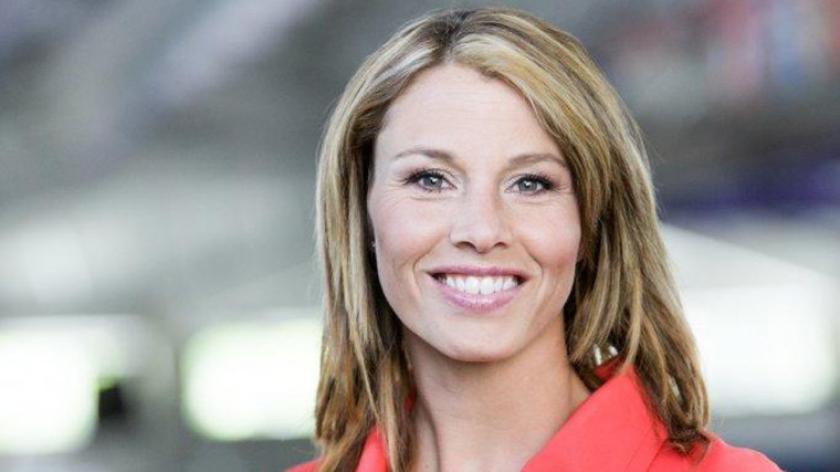Olympic gold medalist Le May Doan trains for new challenge
Speed-skating legend turns to McGill Mini-MBA to gear up for management role

Two-time Olympic gold medalist Catriona Le May Doan is taking on a new challenge.
The Canadian speed-skating legend in September became chief executive officer of Sport Calgary, a civic organization that supports the growth of amateur sports in the city. To gear up for her new role, Le May Doan completed an Executive Development Course offered by the McGill Executive Institute. The course is part of a non-degree program known as the “McGill Mini-MBA” series, offered in five cities across Canada.
For Le May Doan, the short-term, intensive course proved to be an ideal fit. “It was a great experience,” she says. “I was really impressed by the team from McGill."
Le May Doan has worked at Sport Calgary for the past three years, serving previously as director of community and sport engagement for the nonprofit organization. When she was tabbed earlier this year to move up to the CEO role, she began exploring ways to prepare.
“It had been kind of weighing on me to do more schooling,” she explains. “The thing with most winter athletes is that they don’t end up finishing” their studies, since competing on the international circuit means traveling for much of the school year. In Le May Doan’s case, qualifying for the Canadian Olympic team led to her leaving University of Calgary about two-thirds of the way through a degree in sociology.
Le May Doan went on to make Canadian Olympic history. In 1998, at Nagano, she was a double medallist, winning gold medal in the 500 metres in Olympic record time, and added a bronze medal in the 1000 metres. She was given the honour of carrying the Canadian flag at the closing ceremony. Four years later, in Salt Lake City, she became the first Canadian athlete to successfully defend an Olympic gold medal in an individual event.
After retiring from competitive skating in 2003, Le May Doan distinguished herself as a television commentator at subsequent Olympic games. Last year, she served as lead mentor for Canadian athletes at the Winter Olympics in PyeongChang.
None of those roles, however, involved the kind of managerial responsibilities that will come into play in her new role as head of Sport Calgary.
‘The perfect combination’
As she began to explore management-education options, Le May Doan considered pursuing a full-fledged MBA degree. But with two children at home, that seemed like too much to pile on top of her work and family responsibilities. Then she heard about the McGill program.
“This sounded interesting, do-able timewise, financially do-able – all of those things,” she says. “It was the perfect combination.”
So it was that last May, Le May Doan found herself in a cohort of participants from across the country, gathered at a hotel conference centre near the Calgary airport. Like all 30 participants, Le May Doan was assigned to a five-person team. “It was a really neat combination of people from all different areas of business and work,” she says.
In the first four-day module, the students get an introduction to four basic management topics: accounting, marketing, human resources, and strategy. Those are the “building blocks” of the program, says Desautels marketing professor Louis Gialloreto, who has directed the Mini-MBA program for the past 25 years.
By the end of the first module, each team is assigned a case study and given a couple of weeks to work on it. The case study for Le May Doan’s team focused on Burberry, the venerable British luxury brand best known for its iconic trench coats. The assignment: analyze the case, figure out what the company could improve, and propose ways to do so.
The team members returned home, but continued to work together through conference calls and video conferencing. As she plunged into the assignment, Le May Doan initially felt out of her comfort zone. “My weakness is on the financial side,” she says. “But that was the strength of one of our team members, thank goodness.”
‘Shark Tank’ experience
Following the two-week hiatus, the cohort re-convened in Calgary for another four-day module, capped by their presentations to a Shark Tank-style panel of teachers. The teachers challenge the presenters, offer feedback on the content, and provide constructive criticism of the proposals.
Although there’s no grading involved, many teams pull out all the stops to prepare the final presentations, says Mark Hollingworth, a McGill lecturer who teaches in the Mini-MBA program. “Some of them are up late into the night and early that morning, preparing as if they really are going to be on Shark Tank.”
Even Le May Doan, who’s competed on the world’s biggest stage, admits there was “an element of fear” heading into the final presentation.
Overall, the program provided a confidence boost, she says. “Going into new situations, one of the biggest things is you feel like you should know everything, but you don’t. I feel like the program gave us a bit of background, a bit of confidence.”
“It was challenging, for sure. It was a lot of work. But we had a ton of fun, a lot of laughs … I would really recommend this course for many people, with all different areas of expertise.”

